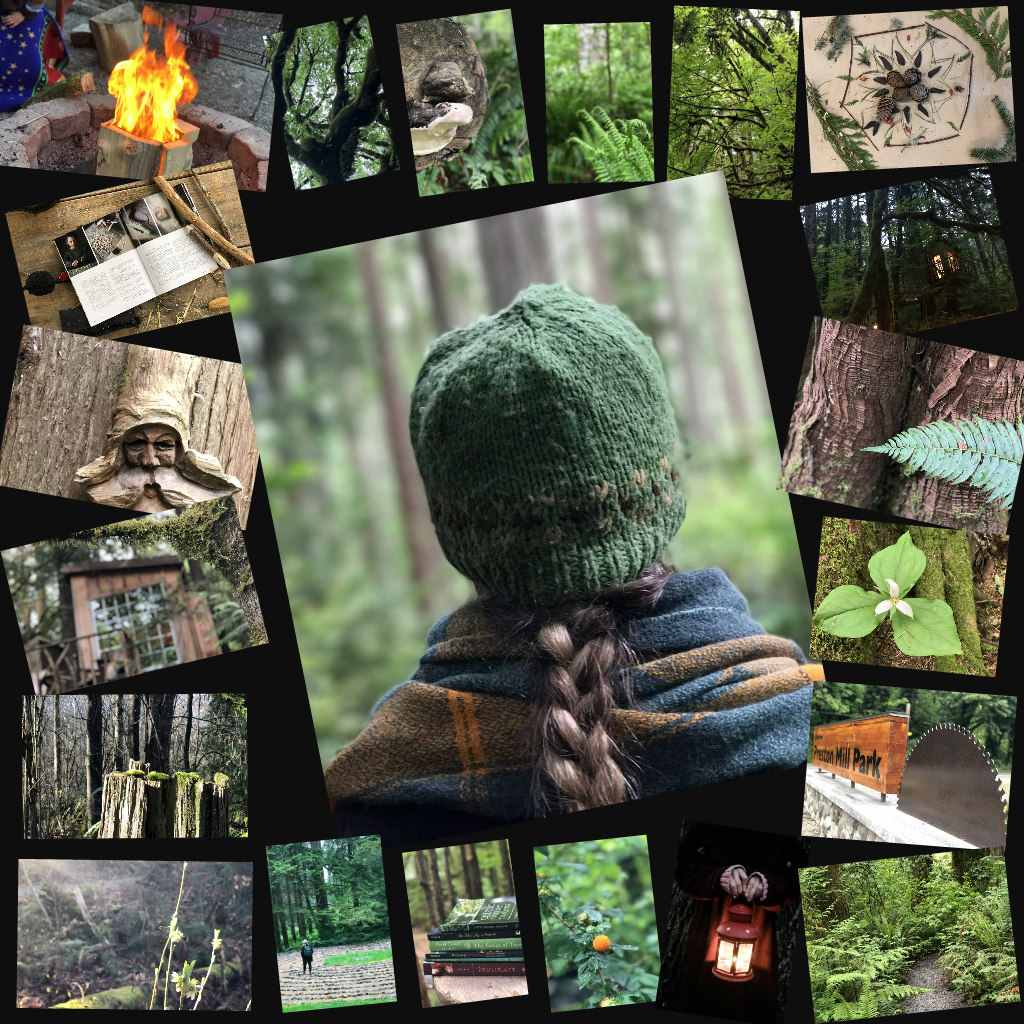My Rewilding Year
/The past four seasons have been an intentional journey of re-membering—rewilding—myself to my bioregion and to the landscapes that create my home. This has been a year of sacred eco-awakening, a reconnecting to an integral communion with the sacred wild. Through a practice with the Rewilding Wheel, I have intentionally sought after relationships and wisdom inherent in the energetic associations between seasons, directions, and elements within a particular bioregion. The scientific world would describe a bioregion as a region defined by characteristics of the natural environment. I like poet and environmental writer Gary Snyder’s understanding of a bioregional consciousness much better—a bioregion is a “spirit of a place.”
When one is actively engaged in relationship with their local landscapes, there is a profound connection to the spirit of that place.
This is beyond the scope of relational recreation (although recreation and play are critical aspects of relational development). I am talking about sensing into a place so deeply that you encounter the Sacred, almost like the experience of digging for a well and finding the wellspring. Soon after beginning this practice of attunement and bioregional apprenticeship, I began to form a core question that stayed with me the whole round of the year. Essentially, I had to recover the answer to the intersectional question of whether I had access to the spirit of a place. As a white woman with settler ancestry, did I have admission to the depths of spirit that resided within my bioregion? Could I dig deep, root deep, and find the Sacred Well-spring that I sensed was present in the very ecosystem of my homescape?
Last January I was in conversation with Celtic scholar and theologian John Philip Newell about this search for the spirit of a place. In response to the question I carried he replied with a perspective that was enormously helpful and wise. He said that “the Spirit of God is like a subterranean stream that percolates up in particularity.” John Philip would understand that one’s bioregion is evidence of this divine particularity and further evidenced by the vast diversity of human and more-than-human life that emerges from particular bioregions. Furthermore, and in answer to my question, he said yes, I have access to that Spirit, for it is the same Spirit that I have come to know in a particular way through my faith tradition, but this invites an engagement with local understandings, stories, and myths that understand the Sacred through again, the particularity of a bioregion.
Good answer, right? Indeed yes and that wisdom carried me around the wheel and through the seasons. And then I had the opportunity to bring this question to another wise elder. You might remember that I spent a few days this past summer at Eloheh Farm with Randy and Edith Woodley. Over the most hospitable cup of never-ending coffee one morning, Randy asked me directly why I had come to see him, why I had come to the land he co-sustained. I brought my question about accessing the depth of a spirit of a place and my thoughts around sacred-bioregionalism.
I was preparing for a dissertation of wisdom that would take days to talk around and through. I received it, but in a word and with the promise that this will take the whole of my life to unpack. Permission.
Permission. Had I asked permission to have that access? Had I asked permission from the land, from the bioregion into the spirit of its place? Had I asked the original inhabitants of the land permission to tap into this deep and sacred soil? Permission.
Permission is the fundamental posture of a practice of sacred-bioregionalism, and it is one that is counter and contrary to the Western mind. It is a humble and vulnerable posture as it assumes that the other has the right to answer, and perhaps contrary to your hope. It is a question that is opposed to the self-entitled position of steward, a role and effort heralded by the Western (especially Christian) mind; a steward doesn’t ask permission but one who is in solidarity does. What would happen if we asked the resident orca whales of the Salish Sea permission to dam the rivers for hydropower, depriving them of the salmon needed for their survival? What if we asked the large marine mammals in the Atlantic permission to allow seismic blasting for oil surveys? What do you think they would say? And how would their response cause you to act and advocate differently? This is the kind of permission-asking that will not only result in the requisite posture shifts to attune to one’s bioregion, to commune with the spirit of a place, but will ensure that the Sacred within and with-out this holy world can continue to speak in full depth into a flourishing future.
“But ask the animals, and they will teach you,
or the birds in the sky, and they will tell you;
or speak to the earth, and it will teach you,
or let the fish in the sea inform you.”
-Job 12:7-10
Spring | East | Fire | Forest
Summer | South | Earth | Field/garden
Autumn | west | water | Watershed/sea
Winter | North | Air | Mountain






